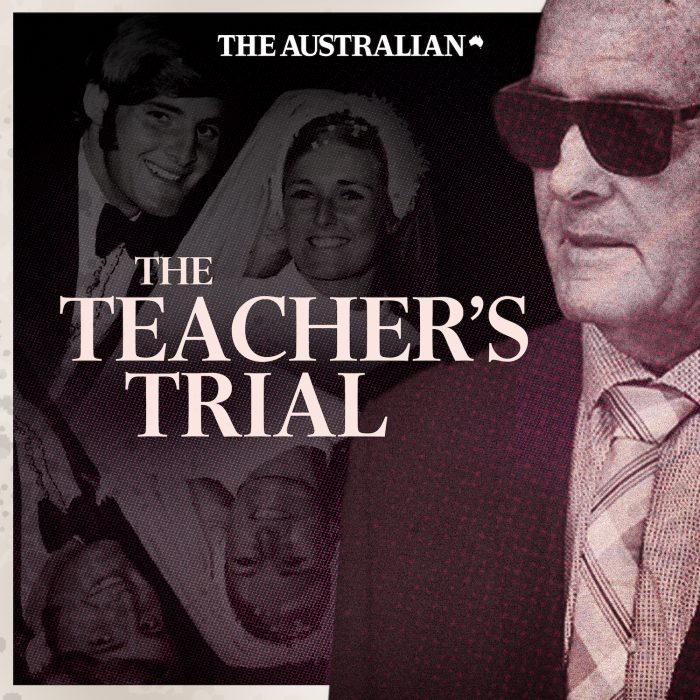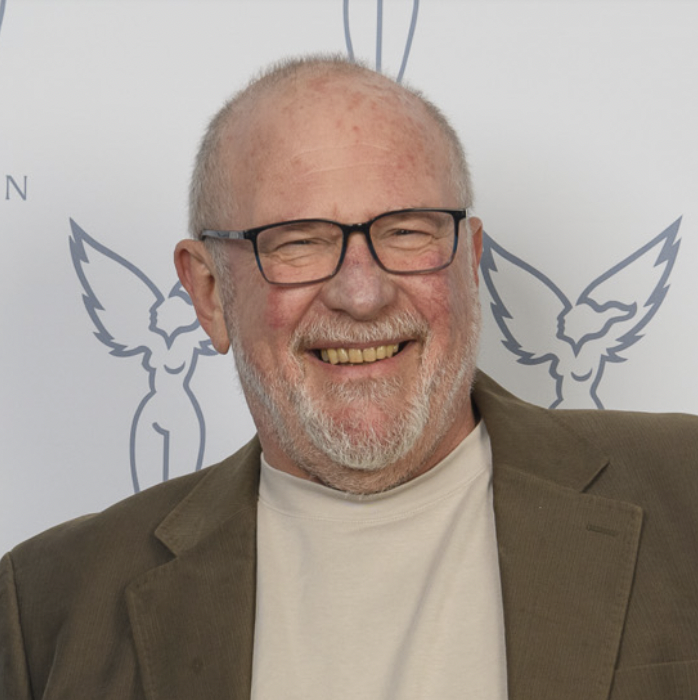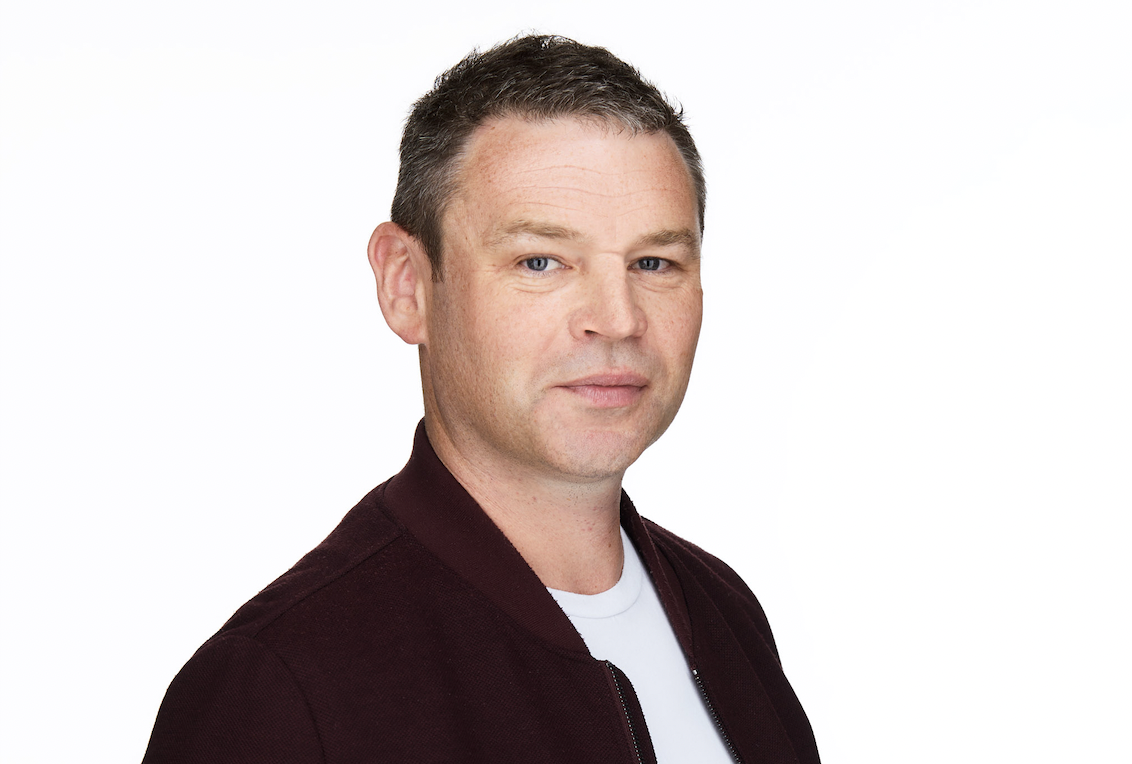Del Fordham of NewsCast chats with Peter Saxon.
In Australian radio and podcast circles, the name, Fordham has become about as common as Smith or Jones.
There’s 2GB’s Breakfast host, Ben Fordham, of course. And Gemma Fordham who was well known over several years as Content Director for SCA’s Hit Network, and now Del Fordham who heads up News Corps’ Podcasting and Audio division, NewsCast.
Are they related, you may ask? Well, yes and no. Gemma and Del are a married couple. Ben is a friend, but no blood relation to Gemma and Del. They know that because they had their ancestry professionally traced only to confirm that Audio was not a familial trait.
NewsCast is a relatively new player in the podcasting space but with its parent’s global footprint can bring enormous resources to the party.
radioinfo: Del, you were the first hire for News Corp’s audio division NewsCast at the end of 2019. But the genesis of that idea came about a few years earlier with what is now arguably Australia’s best-known podcast, that ironically you can’t say much about because it’s the subject of court proceedings right now.
Del Fordham: As we speak Peter, I think, the defence is wrapping up in a moment. You’re referring to a podcast called The Teacher’s Pet, which was made by Hedley Thomas a few years ago. And, yes, it’s a phenomenon of a podcast, not just because of the quality of the production, the investigation and the research around it, but this story has carried through for years. And now today, one of the big projects for the audio team is what we’re calling a “sister podcast” called The Teacher’s Trial, which is a whole other beast of a thing, which we might get on to a bit later.
radioinfo: So originally, this was all Hedley’s idea. The high ups at News Corp showed little interest in it. They didn’t get involved until the thing became this phenomenal success…
Del Fordham: Hedley, in many regards was a maverick, not just within the industry with creating an investigation of such depth, using a podcast as the platform as the main crux of the content. But also, one of the main KPIs of The Australian is on the platform behind the paywall and newspaper sales. So, the idea of creating something of such a premium quality and so much work having to go into such a product, and letting it go for free on Apple Podcasts and Spotify or Google Podcasts was unheard of at the time.
radioinfo: So now tell us a little bit more about Teacher’s Trial – that’s been following the trial that follows the pet. And how you made it under very strict legal parameters. Tell us about that.
Del Fordham: Yes. The Teacher’s Trial has been a big part of my day to day for the best part of, I’d say three months now, probably more. We wanted to take ownership of the trial. We wanted to create something that had Hedley involved and some of the key journalists at the Australian. And I was using a podcast called The Dropout from ABC News over in the US as a reference point.

Then there were discussions around doing a daily update, which means, at the end of (courtroom) proceedings every day, we get all the guys in a room and quickly record half an hour and publish it. What we arrived at with The Teachers Trial was we would use The Front, which is The Australian’s daily news podcast for the daily updates from Monday to Friday. And then every Friday, roughly Friday, sometimes into the weekend, depending on proceedings, we would publish a very long, in-depth episode, but explain the week’s proceedings in layman’s terms, using the expertise of Claire Harvey, Dave Murray and Matt Condon, our three journos who are at court every single day. And yes, to your point, we are under very, very strict legal conditions around this. We have a small team working on the podcast. So, there’s Claire, Matt and Dave, there’s me sitting in as EP, another producer called Kristin, our sound designer Slade and then a guy called Conor, who’s the lawyer who sits across absolutely everything, whether it’s audio, the title of the episode, the synopsis, artwork, the music, absolutely everything.
radioinfo: So that’s a small team? What do you call a big one?
Del Fordham: The thing is that we had to have a good group of journalists around this because of the level of detail needed. And we needed people who are absolutely at the top of their game. And in Claire, Matt and Dave, we have that in droves.
One of the challenges that occurred with the planning of The Teachers Trial is we found out near episode one that Hedley could not be involved in the making of it because he was put on a witness list. And even though it’s a judge only trial, no jury, there are strict conditions around that.
So in a very strange way, we started making this podcast that was a sequel to The Teacher’s Pet, but we couldn’t involve Hedley, and up until episode eight of The Teacher’s Trial, Hedley had not actually heard any of it. Although he was involved in our daily working groups, we had to be very careful on what we spoke about. He was not allowed in on any of our email correspondence. He was completely isolated. We had to have almost nothing to do with Hedley.
But what we did do, to get Hedley integrated was essentially he would go and make profiles on people, the cast of characters. Then we would then integrate those into the chapters of each episode, which were about the daily proceedings.
Every week we’re making an audio jigsaw puzzle, and we needed to make sure that the continuity between what Hedley is filing and the audio that we’re creating day to day based on the day’s events of the trial, all fit together and chronologically make sense to the listener. We’re very conscious that we could do something quite overblown and complicated here, and we needed to keep things as simple as possible with The Teacher’s Trial. And I thought for the most part, we’ve achieved it. We’re on to episodes 11 and 12 imminently as we speak. And, seeing the feedback coming through, the listens that we’ve generated and so on, I feel like we created something quite special.
radioinfo: Well, certainly it’s been incredibly popular. It’s been incredibly forceful… but you do other things besides that. So now you’ve grown a whole podcast publishing empire that’s sort of melded in with the news publishing empire, what makes NewsCast different to, say, LiSTNR or iHeart or Acast or anyone else?
Del Fordham: I would say for the most part, it’s the genres that we play in News is an absolute foundation of what we do day to day. Sport is incredibly important across all of our brands, whether it’s the Metro mastheads or The Australian or news.com.au, and we unashamedly back ourselves in with the True Crime genre as well.
We’re quite specific with the genres that we play in. And don’t get me wrong, we are quite broad, we have a very strong women’s network and we have some really strong mindfulness and wellbeing podcasts. But the areas that we play are very much the core of the News Corp market from a news perspective. I think one of the things that we really back ourselves in with, we do, unashamedly, create content that is Australian. So, whether it’s Gary Jubelin, Matty Johns, Jonathan Brown, Felicity Harley with Healthy-ish, whether it’s Hedley, or whether it’s Jules Robinson and Mel Wilson with The Juggling Act, all of our content is unashamedly original, the stories are Aussie in tone, and the audience that we’re targeting every time is local. It’s quite unique in that regard.
We’ve seen success in the financial year that we’ve just wrapped from an audience perspective… it’s been quite unprecedented considering late 2019, early 2020, it was very early days for us. We barely had a handful of podcasts.
radioinfo: So, have you built all that from within? Does everyone who’s a journalist at News Corp need to hone their speaking skills? Are they going to elocution lessons and learning how to speak “proper” into a microphone?
Del Fordham: In basic terms. Yes. We had quite a bit of fun when creating The Front. So, we knew in Claire Harvey that we had a fantastic host, almost ready to go as the lead on that podcast. We were like, okay, great, we’re going to build this podcast around Claire. But, what we needed from The Australian was at least a dozen journalists who could either use a lapel mic very well or plug in a USB mic well or record a voice memo or whatever it may be… but not just that… be able to articulate what could be a very complicated yarn they’re writing for the weekend or that day in three to four minutes. And do it in one take if they can.
I think we practised making The Front for two to three months before we launched episode one, and it was for the most part due to just nailing that rhythm with the journos.
radioinfo: Are you also recruiting podcasts from independents to be part of the NewsCast stable?
Del Fordham: We haven’t yet and it is something that is on the roadmap. We’ve had discussions with independent podcast producers and talent as well as podcasts that are up and running and about being associated with one of our brands and our sales team representing them and so on. I would say it’s on the horizon. I would say it’s a very distinct possibility that there could be a licensing arrangement or acquisition at some point. My main focus today is the creation of the original content and the building of the network. That’s the priority at the moment.
radioinfo: Are your podcast listeners mainly News Corp readers who find it of value because they can listen to this while they’re doing something else whereas they can’t do it if they’re reading the newspaper. Is that a large part of it?
Del Fordham: That’s a really good question. Our podcasts are skewed far younger than the readers of the masthead, broadly speaking. Moreover, I feel that what podcasts are doing, or let’s say – on-demand audio output, smart speakers in here as well – is that we’re introducing our mastheads, our brands, to a younger audience and hopefully bringing across a younger audience to those mastheads.
With Hedley’s work, in particular, we can see the demographic that’s listening to his work. And it’s skewed very differently to The Australian. The people that are listening to the podcast are far younger than the people on the website or in the app. I feel like we’re actually creating more awareness for the brands to younger audiences, millennials and gen-z.
radioinfo: So is the business model early in the piece, just a cross-pollination exercise, because you don’t really charge for these podcasts, do you? You don’t monetize them otherwise?
Del Fordham: That’s interesting. My feeling is that we’ve actually been a little bit more aggressive, certainly than the other traditional news mastheads in Australia, but maybe more broadly as well. Look, don’t get me wrong, for the most part, our what we call “always-on” podcasts are available on all platforms at the same time that they’re available on other platforms. And for the most part, that’s to drive large listens and therefore commercial revenue and so on. But there’s definitely instances, and this is mostly around premium productions and crime productions, where we’ve locked the audio on platform first. And with that audio there’s associated videos, sometimes drone footage, the journalism, galleries, you name it. So, it’s almost a content experience and we advertise that to potentially new subscribers as a content experience.
So, it’s not just the podcast, it’s a full suite around that story. So, Shandee’s Story, again referencing Hedley had the audio windowed on-platform first for the most part, so two weeks on platform first and then off platform. The Herald Sun have a podcast called Sacked AFL, the audio with the associated journalism was windowed for two weeks on platform first before going off platform. And then we have these large eight part serials for the True Crime Australia Network such as Mafia’s Web, The Lost Ones, Eye Spy and so on, which are entirely locked on platform. So all eight episodes, all eight content bursts if you like, will be locked on platform for roughly a four week period. And then a little bit after that we’ll send the audio off platform and drive large numbers. So I feel like from a journalism perspective, we do back in our premium products a little bit more aggressively and lock them on platform first.
\radioinfo: On-platform meaning through the newspaper websites?
Del Fordham: Yes, exactly that. So you’d have to take out a subscription to the True Crime Australia website or through the Daily Telegraph or the Herald Sun or the Adelaide Advertiser or the Courier Mail to access all eight episodes of Lady Justice and the associated journalism, galleries, all the extra benefits, or you’d have to be a subscriber already, before the podcast will go off platform to the likes of Google Podcasts and so on, which would probably happen, you know, a little bit later when we’re ready.
radioinfo: So, when you say off-platform, you mean to other platforms, like Google and Apple and all of that.
Del Fordham: Exactly right.
radioinfo: Del, if people want to get in touch with you to say, “I’ve got a podcast, you might like to take a listen.” How do they get in touch?
Del Fordham: Just email me directly. [email protected]. I’m always open to an idea. Always open to feedback.

Peter Saxon

